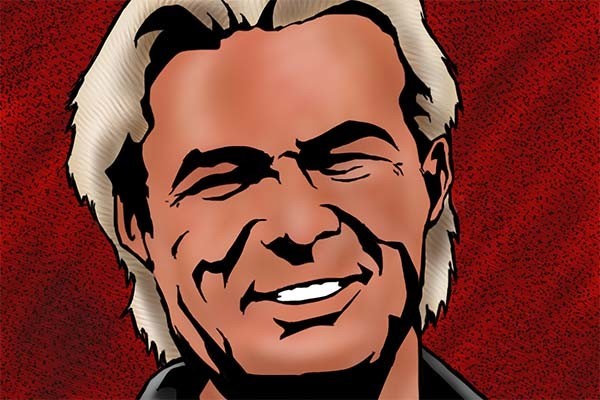
SPOTLIGHTED PODCAST ALERT (YOUR ARTICLE BEGINS A FEW INCHES DOWN)...
The following is another excerpt from Eric Bischoff’s new book, “Grateful.”
In May 2011, it was announced that TNA’s flagship program would be rebranded as Impact Wrestling, as detailed in a company press release:
“While the name change is subtle, it is also very powerful. TNA is proud to be in the wrestling business, and not afraid to say it. And, to emphasize our commitment we have added the word ‘wrestling’ to our already well-known ‘iMPACT!’ brand,” said TNA chief marketing officer Al Ovadia.
TNA is also launching the tagline, “Wrestling Matters,” a statement that reflects every aspect of TNA Wrestling, from program content to marketing to live events.
“We wanted a branding initiative that was scalable and could extend across all platforms,” added Ovadia. “We asked our fans what it was about professional wrestling that they found most compelling. We learned it was no single aspect, their passion for wrestling was all-consuming. Whether it’s the in-ring action, backstage brawls, the feuds or classic dramatic conflict of good vs. evil, it’s the entire experience that makes ‘wrestling matter.’”
The now-famous (or perhaps infamous) rebranding effort started when Spike approached Dixie with the idea. As I recall, the goal of the campaign was – similar to the prior move to Monday nights – to create more awareness outside of the existing audience (and to reinforce the strength of the brand with the existing audience). A meeting was called by Kevin Kay, Scott Fishman, and an executive named Brian Diamond in order to discuss the concept.
In retrospect, this part of the story is really quite amazing to me. During the meeting, Kevin, Scott, and Brian outlined their belief that not only was a strong rebranding campaign needed, but that Spike were willing to fund the campaign (to the tune of a million dollars of the network’s money). A million dollars towards rebranding TNA!
At the risk of being redundant, everyone knew that TNA sounded like… well, tits and ass! It sounded like the acronym. For that reason, there remained a number of people who were uncomfortable with the name, and consequently, Spike wanted to invest both time and money into something more fitting.
First of all, it’s not often that a network is willing to spend a million dollars of their own money in service of branding (or rebranding, in this case) a company that they don’t own. Spike didn’t have any equity in TNA – not even a percentage of it – but they were willing to do it regardless.
In our work as independent television producers, Jason and I had experience in begging, borrowing, and pleading networks to simply promote the shows that we had produced for them. Here – in this case – we had a network coming to the producers and saying, ‘We’ll take care of it.’ It was a really unique situation.
Their presentation was extremely thorough. Spike wanted to look at everything down to the opening music – in fact, they wanted a musical theme for the brand. I remember Brian sending across selections of music that Spike were willing to license – pieces that would fit the new tagline (again, a Spike creation) of Wrestling Matters.
Prior to the meeting, Spike had conducted research that suggested that TNA’s viewers wanted to see more action – and less ‘gaga’, or backstage silliness, for example. The network believed it was important to reinforce the quality of the wrestling, and henceforth, Wrestling Matters was created as an all-encompassing branding statement.
There was a commitment to promoting – both inside and outside of the network – the message that Impact Wrestling was truly an alternative to WWE.
In the end, however – like almost everything else involving the company – it became political.
I was told, courtesy of someone who was very close to the situation, that Janice Carter hated the campaign. Allegedly, she was upset at Spike for coming up with the very idea, thinking that it didn’t make any sense to begin with.
Number one, I thought to myself, you don’t know anything about wrestling!
You don’t know anything about the wrestling business – or the entertainment industry.
You weren’t a part of the process, and you don’t even understand why Spike came up with – and paid for – this entire campaign!
Spike came up with it solely for your brand’s benefit – to increase the value of your company – and rather than saying, ‘Thank you’, you bitch about it!
The implementation ended up being clumsy, disjointed, and confusing. Fans were unsure as to if TNA had retired the company name – in favor of Impact Wrestling – or if the television show had simply changed its title (the latter being accurate).
Among other things, it reinforced – once again – the fact that no-one in TNA understood the concept of working with a network; of developing and harnessing a collaborative relationship with Spike. That fact – more than anything else that was happening on-screen – would always, ultimately, be the limiting factor.
The preceding excerpt was taken from “Grateful,” the new book by Eric Bischoff and Guy Evans.




Leave a Reply
You must be logged in to post a comment.